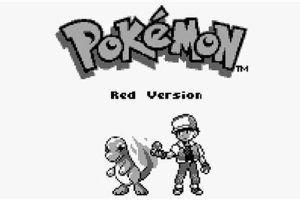The modified game file, often downloaded and played on emulators, allows users to experience a classic adventure on various devices. It is a version of the original Game Boy Advance title, often altered to include additional features, enhancements, or challenges not present in the unaltered release. An example includes improved graphics, expanded character options, or entirely new storylines integrated into the gameplay.
This particular iteration provides accessibility and customization options to a beloved retro title. The ability to experience a familiar world with added content or adjusted difficulty offers a compelling alternative for both seasoned players and newcomers. Its existence reflects the community’s enduring interest in, and modification of, established video game properties, extending their lifespan and appeal beyond their original release.
Further discussion will delve into specific modifications commonly found, the legal considerations surrounding distribution and use, and the technical aspects involved in playing this type of game on different platforms. Analysis of its impact on the emulation community and broader gaming culture will also be explored.
Tips for Experiencing the Modified Game
This section provides guidance for individuals interested in exploring this altered game, aiming to enhance the playing experience and avoid potential pitfalls.
Tip 1: Research the Source: Prior to downloading, investigate the origin of the file. Reputable sources are less likely to contain malware or corrupted data, ensuring a safer and more stable gaming session. Review community feedback and scan the file using antivirus software.
Tip 2: Understand the Modifications: Before starting gameplay, familiarize oneself with the specific alterations implemented. Different versions may contain vastly different gameplay mechanics, story elements, or difficulty levels. Research documentation or community forums to gain insight.
Tip 3: Utilize Save States: Emulators offer the ability to create save states at any point in the game. These are independent of the in-game save system and provide a safety net against crashes or unexpected game events. Employ save states frequently, especially before challenging encounters.
Tip 4: Configure Emulator Settings: Optimize the emulator settings to match the hardware capabilities. Adjust resolution, frame rate, and control mapping for a smoother and more responsive gaming experience. Experiment with different configurations to find the optimal settings.
Tip 5: Backup Save Data: Periodically back up the save data files to prevent loss of progress due to emulator malfunctions or file corruption. Store backups on separate media or cloud storage for added security.
Tip 6: Be Aware of Legal Implications: Downloading and distributing copyrighted material without authorization may constitute copyright infringement. Understand the legal ramifications before engaging with such content.
Adhering to these guidelines will help ensure a more enjoyable and secure experience. The focus should be on responsible acquisition and usage of modified game files.
The following section will address the legal and ethical considerations surrounding the usage of this form of media.
1. Gameplay Modifications
Gameplay modifications constitute a fundamental aspect influencing the user experience within the context of the modified title. Alterations range in scope and complexity, transforming familiar mechanics into new gameplay opportunities.
- Increased Difficulty
Higher difficulty settings often manifest through adjustments to enemy AI, stat distributions, and availability of resources. An example includes Gym Leaders possessing enhanced teams with optimized move sets. This alteration provides a greater challenge for experienced players, demanding strategic team composition and tactical decision-making.
- Expanded Character Options
This includes the introduction of new playable characters or customizable character attributes beyond the original game’s limitations. In some versions, trainer classes might possess unique abilities or starting items, adding depth to character selection. The result creates diverse starting conditions and gameplay styles, catering to different player preferences.
- Adjusted Encounter Rates
The frequency and variety of wild encountered in specific areas can be modified to change exploration and team building. For instance, rarer creatures might be made more accessible earlier in the game. This modification significantly alters the pacing of team development and the availability of strategic options.
- New Storyline Content
Modified versions frequently incorporate entirely new storylines, quests, and non-player characters (NPCs) that are absent from the original. These additions can range from minor side quests to fully-fledged narratives that expand upon the existing game world and lore. Such expansions provide increased replay value and offer fresh experiences within a familiar setting.
These alterations directly impact the overall gameplay loop. The implemented changes re-imagine the experience, shifting the balance of strategy, accessibility and replay value, demonstrating that “rom pokemon red fire” offers a distinct variation of the original game experience.
2. Emulator Compatibility
Emulator compatibility directly dictates the playability of altered game files. The architecture of various emulators and the coding structure of the modified game image interact to determine whether the game operates as intended. Incompatibility can manifest in numerous ways, including graphical glitches, audio distortion, control unresponsiveness, or complete failure to load the game. The specific emulator used, its version number, and the operating system on which it is running influence the experience.
A practical example includes the use of VisualBoyAdvance (VBA), a popular Game Boy Advance emulator. While VBA may successfully run the original unmodified game, a altered version containing advanced graphical enhancements may encounter errors due to VBA’s limitations in rendering certain complex effects. Another example lies in using mGBA, a more modern GBA emulator, which often provides better compatibility and performance for modified games due to its more accurate emulation core. The choice of emulator must therefore align with the modifications present. Moreover, the emulator settings should be customized to match the modified game. For example, enabling specific graphical enhancements or adjusting audio settings might be necessary to rectify graphical or audio issues that arise from incompatibility.
In summary, emulator compatibility serves as a crucial determinant of the overall experience. The interplay between the emulator’s capabilities and the modified file structure dictates whether the game functions correctly. Careful consideration must be given to select an emulator capable of handling the modifications implemented within the modified game. Furthermore, configuring the emulator settings correctly ensures that the game functions correctly. This understanding is essential for users to avoid frustration and gain optimal enjoyment.
3. File Integrity
File integrity is paramount when acquiring and utilizing altered game files. The validity and completeness of the downloaded file directly influence stability, security, and overall user experience. Corrupted or incomplete files can lead to game crashes, data loss, or even security vulnerabilities.
- Checksum Verification
Checksums, such as MD5 or SHA-256 hashes, serve as digital fingerprints for files. Comparing the checksum of a downloaded game file against a known, trusted checksum verifies its integrity. A mismatch indicates alteration or corruption during transmission. Failing this step risks executing potentially malicious or unstable code.
- Source Reliability
The source from which the game file is obtained significantly impacts its likelihood of possessing integrity. Downloading from reputable forums, trusted websites, or established communities reduces the risk of acquiring compromised files. Unverified or obscure sources increase the possibility of malicious tampering.
- File Size Consistency
Significant deviations in file size compared to expected values can indicate corruption or incomplete downloads. While minor variations may occur due to compression or packaging differences, large discrepancies warrant further investigation. Unexpected size differences suggest missing data or the insertion of extraneous content.
- Executable Analysis
Analyzing the executable file within the game data, if present, can uncover suspicious code or modifications. Examining file headers, embedded resources, and code sections can reveal alterations intended for malicious purposes or unintended changes that compromise stability. This requires specialized tools and knowledge of file structures.
These facets highlight the importance of vigilance when handling game files. Verifying checksums, prioritizing reliable sources, confirming file size consistency, and analyzing executable content ensures a more secure and stable gaming experience. Neglecting these considerations can expose users to risks ranging from game crashes to security threats, undermining the intended enjoyment and functionality.
4. Community Influence
The community plays a pivotal role in the creation, dissemination, and sustained interest in modified game versions. Its influence spans various aspects, shaping the availability, features, and perception of such content.
- Content Creation and Distribution
The community actively develops altered versions, incorporating new features, storylines, or challenges. Fan-made patches and modifications are often distributed through online forums and file-sharing platforms, enabling wider access. This decentralized approach allows for diverse and creative expansions beyond the original developer’s intent.
- Knowledge Sharing and Support
Online forums, wikis, and video tutorials provide comprehensive support and guidance for users. This shared knowledge base encompasses troubleshooting, gameplay tips, and technical assistance, fostering a collaborative environment. Community-driven documentation enhances the accessibility and usability of the modified game.
- Quality Control and Feedback
The community serves as a collective testing ground, identifying bugs, providing feedback on gameplay balance, and suggesting improvements. User reviews and ratings contribute to the evaluation of different modified versions, informing download choices and development priorities. This iterative process refines the quality and playability of altered game content.
- Preservation and Archiving
The community actively preserves and archives modified versions and related resources, ensuring their long-term availability. Fan-created websites and repositories safeguard these files from digital obsolescence, maintaining access for future generations. This archival effort recognizes the cultural significance of fan-created content and its contribution to gaming history.
These elements collectively demonstrate the significant influence wielded by the community. The creation, distribution, support, evaluation, and preservation of altered game content are all driven by collaborative efforts, showcasing the enduring impact of fan engagement on the lifespan and evolution of such projects. Without the community, the availability and ongoing refinement of modified versions would be significantly diminished, highlighting their crucial role in fostering and sustaining interest in “rom pokemon red fire”.
5. Legal Considerations
Navigating the legal landscape surrounding altered game files requires careful attention. Copyright law and intellectual property rights govern the distribution and use of copyrighted material, including video games and their associated data. Unauthorized reproduction and distribution of such content may result in legal consequences.
- Copyright Infringement
Altering and distributing copyrighted game files without permission from the copyright holder constitutes copyright infringement. The copyright holder, typically the game developer or publisher, possesses exclusive rights to control the reproduction, distribution, and adaptation of their work. Sharing a modified game file, even for non-commercial purposes, can infringe upon these rights. An example includes the unauthorized distribution of a modified version that incorporates copyrighted characters, music, or storylines from the original game. This infringement can lead to legal action, including cease and desist orders and potential lawsuits.
- Digital Millennium Copyright Act (DMCA)
The DMCA addresses copyright issues in the digital realm, including provisions that prohibit the circumvention of technological measures designed to protect copyrighted works. Modifying a game file may involve circumventing such measures, particularly if the original game incorporates copy protection mechanisms. Violating the DMCA can carry significant legal penalties. A practical instance involves bypassing encryption or authentication protocols to access and alter game data, potentially triggering DMCA violations.
- Fair Use Doctrine
The fair use doctrine permits limited use of copyrighted material without permission for purposes such as criticism, commentary, news reporting, teaching, scholarship, or research. However, the application of fair use to game modifications is complex and often debated. Factors considered include the purpose and character of the use, the nature of the copyrighted work, the amount and substantiality of the portion used, and the effect of the use upon the potential market for or value of the copyrighted work. A non-commercial modification that adds significant new content and does not directly compete with the original game may have a stronger argument for fair use than a modification that simply redistributes the original game with minor alterations.
- Distribution Liability
Individuals or entities that distribute altered game files may be held liable for copyright infringement, even if they did not create the modifications themselves. Providing access to infringing content, whether through direct file sharing or linking to infringing sources, can expose distributors to legal risks. Online platforms and communities that host or facilitate the distribution of altered game files may also face legal scrutiny. A real-world example involves websites that host downloadable altered game files; these sites may be subject to copyright takedown requests and potential legal action from copyright holders.
These legal considerations underscore the need for caution when engaging with altered game files. Copyright law protects the rights of creators, and unauthorized use or distribution of their work can have serious consequences. While the fair use doctrine may offer limited protection in certain circumstances, the boundaries remain unclear and subject to interpretation. Understanding and respecting copyright law is essential for responsible participation in the gaming community. These facts impact the interest of playing “rom pokemon red fire” game.
6. Technical Execution
Technical execution forms the critical foundation upon which the experience of playing an altered game rests. This encompasses the processes of acquiring the game file, ensuring its integrity, configuring the emulator, and troubleshooting potential issues. The success of technical execution directly determines whether the altered content is playable, stable, and enjoyable. Failure at any stage can result in a non-functional game, glitches, or security risks. For example, improper emulator configuration may lead to graphical artifacts, audio distortion, or control lag, thereby detracting from the intended gameplay experience.
The technical aspect extends beyond initial setup and delves into ongoing maintenance and optimization. Users often need to adjust emulator settings, install compatibility patches, or modify game files to address specific issues. For instance, a game altered to run at a higher resolution may require adjusting emulator settings to prevent slowdown or crashes. Additionally, users must understand file formats, directory structures, and file management techniques to properly install and manage altered game files. Ignoring these technical nuances can result in corrupted save data, lost progress, or the inability to access certain game features.
In summary, successful technical execution is paramount for accessing and experiencing the benefits offered by the fan-modified game. It requires a blend of technical knowledge, careful attention to detail, and a willingness to troubleshoot potential issues. Overlooking the technical aspects can lead to frustration and ultimately undermine the intended gaming experience. The overall experience and success of it depend heavily on successfully navigating these technical factors.
Frequently Asked Questions about Modified Game Files
This section addresses common inquiries regarding altered game files, aiming to clarify misconceptions and provide accurate information.
Question 1: Is the download and use of this specific modified game legal?
The legality depends on several factors, including copyright law and the source of the file. Downloading or distributing copyrighted games without permission constitutes copyright infringement in many jurisdictions. If the file is freely available from a non-official source, its legality should be carefully scrutinized.
Question 2: What are the potential risks associated with downloading and using altered game files?
Risks include exposure to malware, viruses, and other malicious software. Altered files may also contain corrupted data, leading to game crashes or data loss. Furthermore, downloading and using altered game files may constitute copyright infringement, potentially leading to legal repercussions.
Question 3: How can one verify the integrity of a downloaded altered game file?
Verify the file’s checksum (e.g., MD5 or SHA-256 hash) against a known, trusted value. Discrepancies indicate corruption or tampering. Download from reputable sources and scan the file with antivirus software before execution.
Question 4: Which emulators are compatible with this kind of altered game?
Compatibility varies depending on the specific modifications made to the game file. Generally, emulators designed for the original system on which the game was released (e.g., Game Boy Advance) may be compatible. Research community forums and consult emulator documentation for specific compatibility information.
Question 5: Will playing this specific altered version online expose one to any risks?
Online play may be unsupported or may violate the terms of service of the original game or online platform. Engaging in online play with altered files may result in account suspension or other penalties. Furthermore, altered files may introduce security vulnerabilities, potentially exposing users to hacking or data theft.
Question 6: Where can individuals obtain legitimate copies of the original game instead of seeking altered versions?
Legitimate copies of the original game may be available for purchase through online retailers, used game stores, or digital distribution platforms. Legal alternatives provide a safe and ethical means of experiencing the game without infringing on copyright law or exposing oneself to security risks.
Careful consideration of these questions allows users to approach the world of modified game files with a degree of informed caution. This knowledge can assist in the making of more informed and responsible decisions.
The subsequent section provides a summary of the topics covered.
Conclusion
This exploration of rom pokemon red fire has considered a range of essential facets, from gameplay modifications and emulator compatibility to legal considerations and community influence. Analysis reveals a complex ecosystem of fan-created content that reshapes a classic gaming experience. Understanding the risks and rewards associated with these modified versions is crucial for responsible engagement.
The decision to interact with altered game files should be undertaken with informed consent and a clear understanding of the ethical and legal implications. Continued awareness and responsible behavior will shape the future of this evolving landscape, fostering a balance between creative expression and respect for intellectual property rights. Independent research and critical thinking are encouraged.







